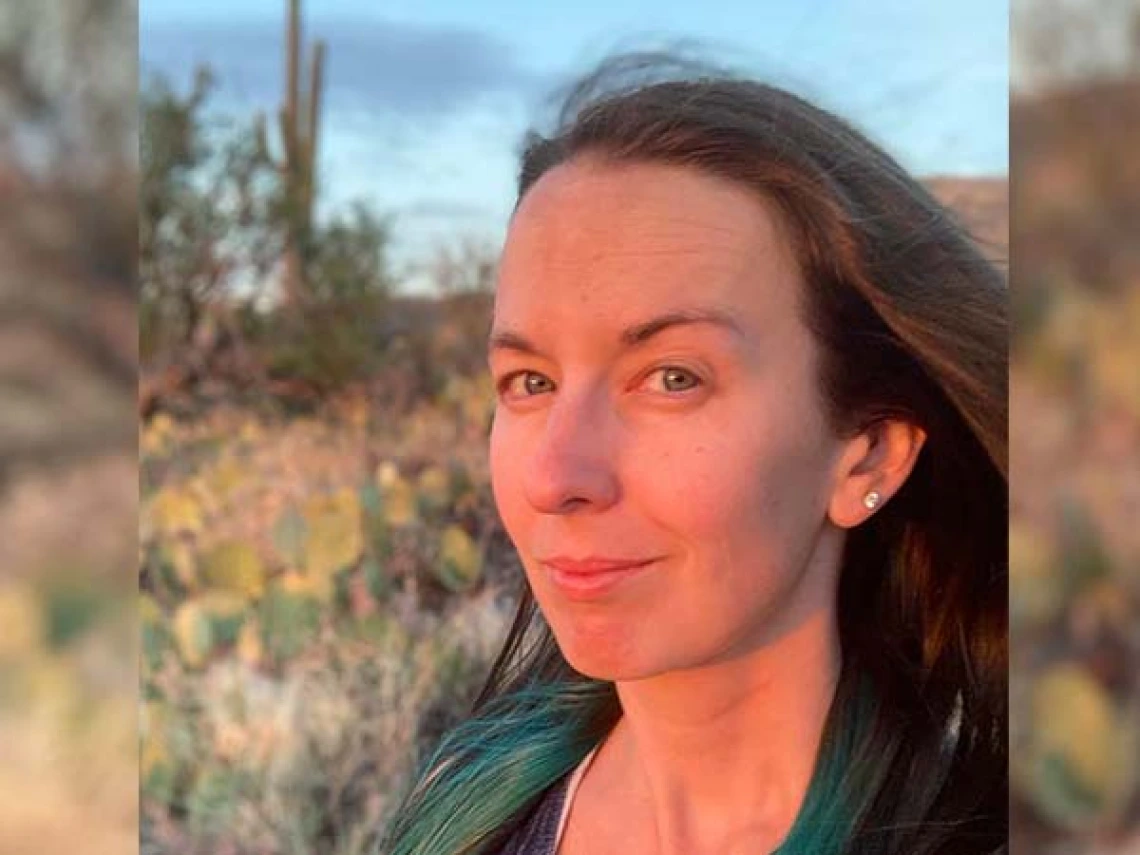Trainee Update: Sarrah Hannon

Sarrah Hannon, Superfund trainee and fourth-year PhD candidate in Dr. Xinxin Ding’s lab in the College of Pharmacy’s Pharmacology and Toxicology program, is setting new rules and expectations of the roles of patients in their own disease research.
Hannon lives with a genetic connective tissue disorder, Ehlers Danlos Syndrome (EDS). EDS is a collection of connective tissue disorders caused by mutations in proteins and enzymes involved with extracellular matrix processing and structure. Sarrah lives with the hypermobility subtype of the disorder (hEDS), characterized by frequent joint dislocations, fragile skin and tissues, a multitude of rare comorbidities, severe chronic pain, and more. Despite displaying obvious issues from childhood, Hannon wasn’t diagnosed until the age of 25 after years of investigating the meaning behind her own symptoms and receiving help from a friend with an MD. Sarrah has had more than 10 surgeries to correct joint injuries and to address spinal instability, including permanent fusion of her entire cervical spine.
Sarrah Hannon, formerly a forensic toxicologist, came back to school as a non-traditional student in Fall 2019. After years of advocating for her patient community through social media and news articles (TMC Pulse feature), Hannon hoped to apply her expertise as a scientist; studying and teasing apart the etiology and pathophysiology of her own under-studied conditions as a new way to advocate for her patient community. She never imagined she’d join a generation of patient-researchers and be able to participate in that research before even completing her PhD (Stat News article).
On top of her dissertation studies on the role of naphthalene in carcinogenesis in firefighters, Hannon collaborates with the staff of the Steele Children’s Research Center’s Arizona Research Investigating Disability and Disorders (ARID) at the University of Arizona. She provides biochemical and analytical insights to research projects, as well as a patient perspective as someone who is deeply tapped into the patient community. ARID currently has a number of projects within the EDS community (active projects), but Sarrah has taken a direct role in the analysis of results from a recent metabolomics study in a patient cohort. These metabolomics results, coupled with transcriptomics, will provide preliminary potential biomarkers for an objective diagnostic test for patients with hEDS, until the exact genetic cause can be elucidated. These results could also contribute to the discovery of this genetic mutation.
Driven by her own experiences as a patient, Sarrah Hannon is determined to remain in academia after completion of her PhD, to start her own research lab and raise awareness and understanding about her conditions through sharing this research and teaching in health sciences.

